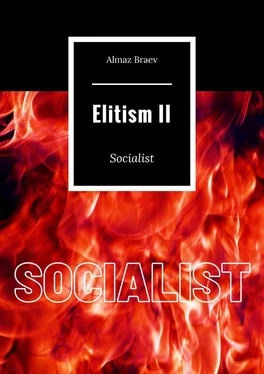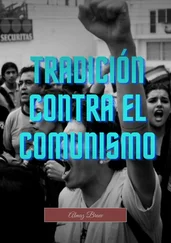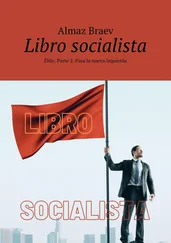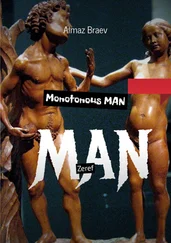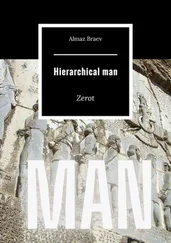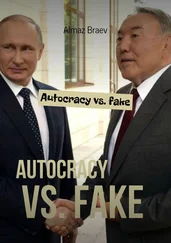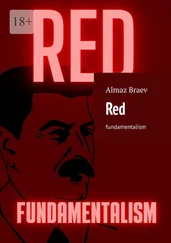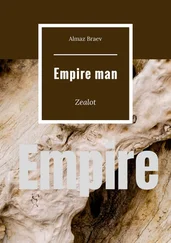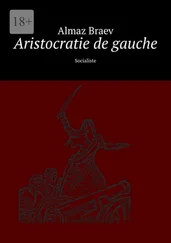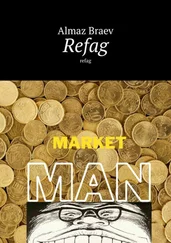Elitism II
Socialist
Almaz Braev
© Almaz Braev, 2022
ISBN 978-5-0053-8291-7 (т. 2)
ISBN 978-5-0053-8292-4
Created with Ridero smart publishing system
When the Bolsheviks carried out a coup in October 1917, their opponents accused them of a crime. There is a fact necessary to prove a crime for any criminal offense. If you combine the criminal law-an attempt on power and the civil code, it turns out that the revolution is a violation of the right of inheritance. A massive violation of the most important, one might say, sacred right—violation of the right of inheritance of the entire nation. From here, the opponents of the Bolsheviks quickly narrowed down the group of criminals to the gang of Lenin and his Jewish accomplices.
But the citizen Lenin, or the revolutionary Lenin, has nothing to do with it. If someone wants to find out who actually carried out the coup, and this is not the revolutionary Lenin at all, (although de facto Lenin) would have to contact the civil code himself. To the extent that you understand how serious this case is. In his fate. In the fate of everyone. In the fate of every family. And in the destiny of the state, In the destiny of the nation as a whole. Let's start with the fact that the pillar definition of the state and the social system is the right of property. What is the right of ownership? So is the state. If this is a Salic right, then, as a rule, the people's property is managed by one authorized person-this is the monarch and his children; the monarch, today the autocrat, his nobles, the new nobles, the court camarilla, and so on. If bureaucrats manage the property, then usually, as is customary, such a system is called socialism.
How so? Today, the property is also managed by former officials, but this is not socialism at all; readers will object. Really. Under socialism, private property is abolished. But only in terms of the appropriation of wage labor. In fact, the property remains. But this property was called «personal property» for convenience. It, they say, can be inherited. The underdevelopment of socialism is attributed to the shortcomings of the classics. The classics of Marxism here acted as gods (perhaps the life span was not enough for them, Lenin still fell ill at the wrong time). But in general, the whole problem revolves around the property. However, everyone wants to spin it around the Russophobe Lenin and his Jewish gang.
In fact, once again, Lenin had nothing to do with it. And Marxism has nothing to do with it. For Marxism to germinate in Russia, contrary to Marx by the way, the soil must be “unabated” by something else. Why Marxism, or its parody, started playing in Russia. No left-wing patriot, aka Stalinist, will ever give an answer. Usually, there is a quote from Marx on the topic of production forces and relations. Or it just sounds like the answer to your question, “you is fool himself”. This means they don’t have an answer to the question. If you have already heard about Salic law, we will continue.
Usually, monarchists are considered on the right, on the spectrum of political activity. This does not seem to concern the disposal of property.
The right also includes fascists. Officials are also present here. They also talk about the people, the nation. But they set priorities. The property belongs to the people, the nation, the state, and the officials. Do the Fascists have a Salic principle of inheritance transfer? No. The Fascists already have a majorate. The ruling center shifts away from the center, the monarch and his relatives' will, towards the people (to be more precise, towards the bourgeoisie). During the European revolutions, the European revolutionaries took away the distribution function from the sacred figure and handed it over to themselves. Hence, the same disposition of property, but on the surface, the rights are reserved exclusively to the eldest sons. The Fascists do not abolish property; everyone knows this (Please remember this point about the eldest sons)
Why is it that there was no transfer of inheritance from the father state to the eldest sons in the same way in Russia? First, Lenin advocated his doctrine of expropriation of expropriators. Ah, so Lenin and Marx still have something to do with it! Yes, Lenin and Marx are still at it. In Russia, there was no institution of private property. In the bourgeois sense, to convey it exclusively in the traditional sense. As a people's community, the Russian world was deciding, and so it was.
The main principle of rural communities is not Salic. The community is based on patriarchal laws. But for the community, for the village elders, the main principle is justice. This means that they could pass it to both the senior and the junior. With a large «turnover», mortality, perturbations, and other anarchism, everyone could inherit. After all, what is anarchy? Why it appeared in agricultural communities. Although this is a distraction from the topic, anarchy is just the most communist principle of distribution. Anarchy is the work of the young, and it is the right of the people to abolish the self-will of the old. Marx is also a kind of Jewish anarchist. He was deprived of property, and he was engaged in the promotion of democracy all his life. Yes, by the way, the promotion of democracy does not imply the abolition of property. That's why everyone likes it, including the eldest sons – the main contenders for property in Europe.
If there is enough property for everyone, the eldest sons can always remain monarchists. They settle for monarchies. If the property is not enough, all the older sons join the Blackshirt units. It all ends with a world war. It is this side of fascism that everyone knows.
The moment has come to explain why the eldest sons proclaim national socialism and the younger sons international socialism. No one will mind that in both cases – isn't the monarch doing it? Every proletarian internationalist follows precisely the fate of the rootless revolutionary Marx, who has absolutely no claim to his father's inheritance. Lenin too. And this situation of the abolition of patriarchal queues just corresponds to patriarchal Russia. But only during the crisis of the inheritance distribution system itself. All the younger sons cancel the old queue, cancel classes and ranks, and take whatever they want.
For Russia was the most important issue with the land; during the reign of the last Romanov, for forty years, the population of Russia had grown by a third. The first sign of overpopulation and rebellion of all the younger ones in the families is terrorism. This was not only in Russia. No one wanted to wait their turn. Especially if the younger son received the light of knowledge, none of the younger sons would tolerate it. They watched as the incompetent sons of generals and nobles got positions. They were filled with indignation, and it was a civil protest. Socialism, in the usual sense, is the system of all the younger sons. This is a denial of the patriarchal queue. After all, communism abolishes private property. However, this is not possible yet.
Lenin and his” gang” tried to abolish private property… by decree. Thus legalize the right of inheritance in the form of personal property already. But the people are the people. The Russian people have never lived under formal laws, although they always want to teach them to the European order (majorat). Under informal laws, new officials quickly replaced all the Leninist revolutionaries who had taken power in Russia. The bureaucrats replaced the revolutionaries within 15 years. And they bowed to the new secretary. Essentially, the Stalin was a new red monarch. What has changed in the power structure? Nothing. The same dictatorship of the father of the nation.
Читать дальше
